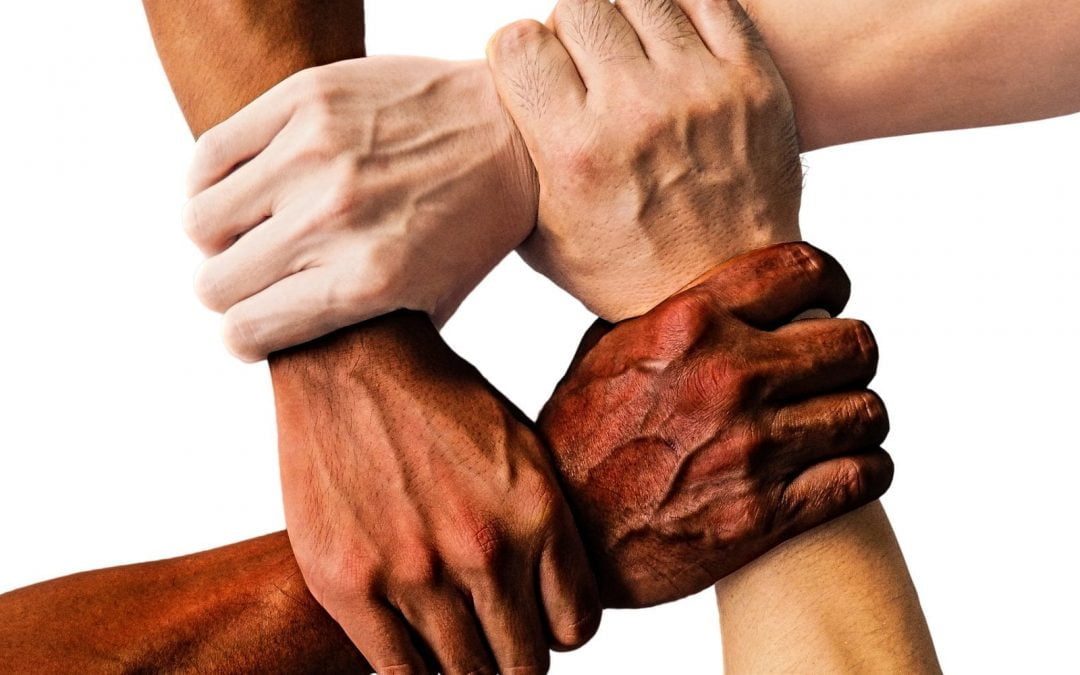A popular uprising sprang up in Lebanon against endemic state corruption and the kleptomania of our political class on Oct. 17.
This uprising – or “revolution,” as the majority of activists prefer to call it – is populated by the majority of the Lebanese and is largely led by activists toughened by years of militancy on various causes, including the environment, women’s rights, LGBT criminalization, domestic violence, sectarianism and child marriage.
It is hard to reproach these activists for incriminating religion as a primary culprit of the miserable condition my country has reached in light of the divisive sectarianism from which Lebanon suffers.
At the same time, many would argue that our confessional political system has been the guarantor of equal representation for upward of 17 faith communities embraced by Lebanon’s small population of about 4 million.
It may, therefore, be wise to distinguish between destructive sectarianism and representative confessionalism.
In a region where most still view their faith loyalty as a core component of their identity, I would argue that our efforts should focus on the “management” rather than “vilification” or “marginalization” of religious feelings.
I see this as a central task of peacebuilding in this region of the world.
Here are a few field-tested guidelines:
- Learning how to discuss religious matters with grace and in an atmosphere of personal friendship is central to peacebuilding.
Khebz w Meleh (“Bread and Salt”) is an initiative of our Institute of Middle East Studies at the Arab Baptist Theological Seminary, where we equip Christian and Muslim youths with the necessary tools to engage together in conversation about their faith.
As they gather around a simple meal – symbolically represented by the metaphors of bread and salt – they talk about how their faith inspires their lives, learning the important discipline of listening without trying to enforce their own views on others.
They learn how to acknowledge similarities and differences, focusing on the positive in their own faith rather than speaking negatively of the other’s faith.
They commit not to view the person in front of them as representative of their group, nor to hold them responsible for bad acts committed by someone from that group.
Our Institute also works with faith leaders and their faith communities based in mosques and churches.
In this multifaith Friendship Network, we encourage activity participants to take the risk of embracing trust as a basic predisposition, as they engage across religious boundaries.
- Trust is one of the most valuable gifts we can offer to those who are different from us as we work toward peace.
Without the vulnerability that comes with trust, it is difficult to develop a real friendship.
In these church-mosque gatherings, participants are never asked to give up their distinctive beliefs, as difference is valued as one of the most important components of relationship.
Trust is rooted in the fundamental acknowledgment of our common humanity rather than in any dismissal of diversity.
- Another core component of friendship promoted in our network is empathy.
Having the courage to advocate for what is best in my friend’s faith is essential to peacebuilding.
Acknowledging the positive aspects of another religion does not presuppose a denial of negative aspects – potential or real.
Interfaith empathy represents an acknowledgment of the diversity inherent to any religious movement.
And the very relationship I have with someone from another faith, in whom I have found kindness and friendship, is itself a recognition of this diversity.
Recognizing the diversity inherent to any group, rather than resorting to essentialism, is a mark of respect. That brings me to my fourth guideline.
- Respect is perhaps one of the highest virtues that interfaith conversations can aim for as we seek to advance interfaith peacebuilding.
Once friendship settles into a relationship, my respect for my friend is rooted first in who they are as a person rather than in what they believe.
I respect their beliefs because I respect them, and I exercise empathy – which is a way of putting myself in their shoes – toward their beliefs by seeking to value what they value, hence gaining the right to engage them respectfully on areas where I have doubt or suspicion.
To conclude, I would advance that reimagining faith allegiance as an inspiration for peace rather than as an instigator of conflict is the key antidote to a society with confessional structures such as Lebanon.
As a committed disciple of Jesus, committed to a life of witness to his transforming grace, I am constantly in search for friends and partners whose faith – whichever it is – inspires them toward love, kindness and good-neighborliness.
It is in faith-inspired togetherness, rather than in secularism, that we can build communities of peace in our multifaith societies.
Editor’s note: This article is part of an EthicsDaily.com series this week focused on peacemaking. The previous articles in the series are:
Balancing Idealism and Realism as We Seek Peace on Earth | Richard Wilson
Revisiting the 10 Practices of Just Peacemaking Theory | David Gushee
Why You Must Pursue the Biblical Call of Peacemaker | Rod Benson


